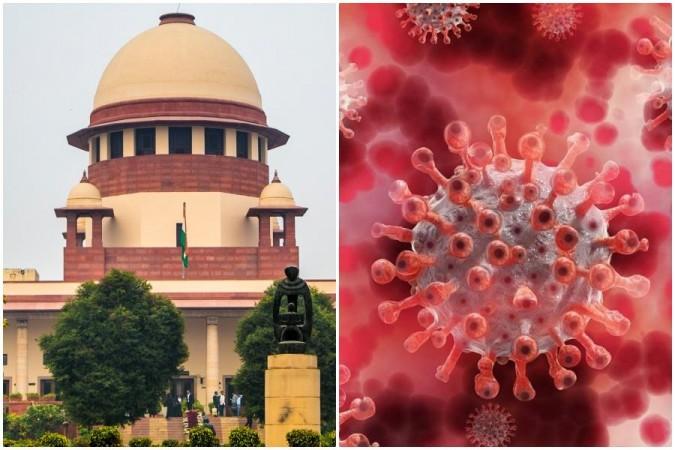The Supreme Court on Monday faced technical glitches during the virtual proceedings and decided to hear the suo motu case on the management of Covid-19 (distribution of essential supplies and services during a pandemic) on May 13.
A bench comprising of Justices D.Y. Chandrachud, L.N. Rao and S. Ravindra Bhat during the hearing noted that the server was down.
"We judges had a discussion among ourselves and have decided to take up the matter on Thursday," said the bench.
The top court was supposed to conduct a hearing on the Centre's affidavit, which was filed late night on Sunday. Justice Bhat said the control room is down and all the matters connected with Covid-19 management will be taken up on Thursday.

The bench noted that judges and the amicus curiae in the matter will also get time to examine the Centre's response in the matter. During the hearing, Justice Chandrachud cited news reports regarding the Centre's affidavit and added that two judges on the bench had received the Centre's affidavit on Monday morning.
"I got the affidavit late in the night but my brother judges have got it in the morning," said Justice Chandrachud. Solicitor General Tushar Mehta, representing the Centre, submitted that after they filed the affidavit, they served the copy to the state.
The top court on April 30, had directed the Centre to prepare oxygen buffer stock for emergency purposes in collaboration with state governments and decentralise the location of the stocks, enabling its immediate availability, if the normal supply chain is disrupted.

In a late-night affidavit submitted in the Supreme Court, the Centre defended its Covid vaccination policy, which has been criticized for differential pricing, shortage of doses, and slow rollout.
The Centre added that the price factor will not have any impact on the ultimate beneficiary namely, the eligible person getting the vaccine since all state governments have already declared their policy decision that each state will be administering the vaccine to its residents, free of cost.
Urging against judicial interference on its vaccine policy, the Centre's Sunday night affidavit said: "Any overzealous, though well-meaning judicial intervention may lead to unforeseen and unintended consequences, in absence of any expert advice or administrative experience, leaving the doctors, scientists, experts and executive very little room to find innovative solutions on the go."
The Centre said it is most respectfully submitted that in the times of such grave and unprecedented crisis which the nation is fighting the disaster of an unprecedented magnitude, the executive functioning of the government needs the discretion to formulate policy in the larger interest.













!['He is done with the team now' : Angry Virat Kohli slams the bat, kicks the ground, yells at RCB team as SRH smashes runs [reactions]](https://data1.ibtimes.co.in/en/full/796956/he-done-team-now-angry-virat-kohli-slams-bat-kicks-ground-yells-rcb-team-srh-smashes.jpg?w=220&h=138)



